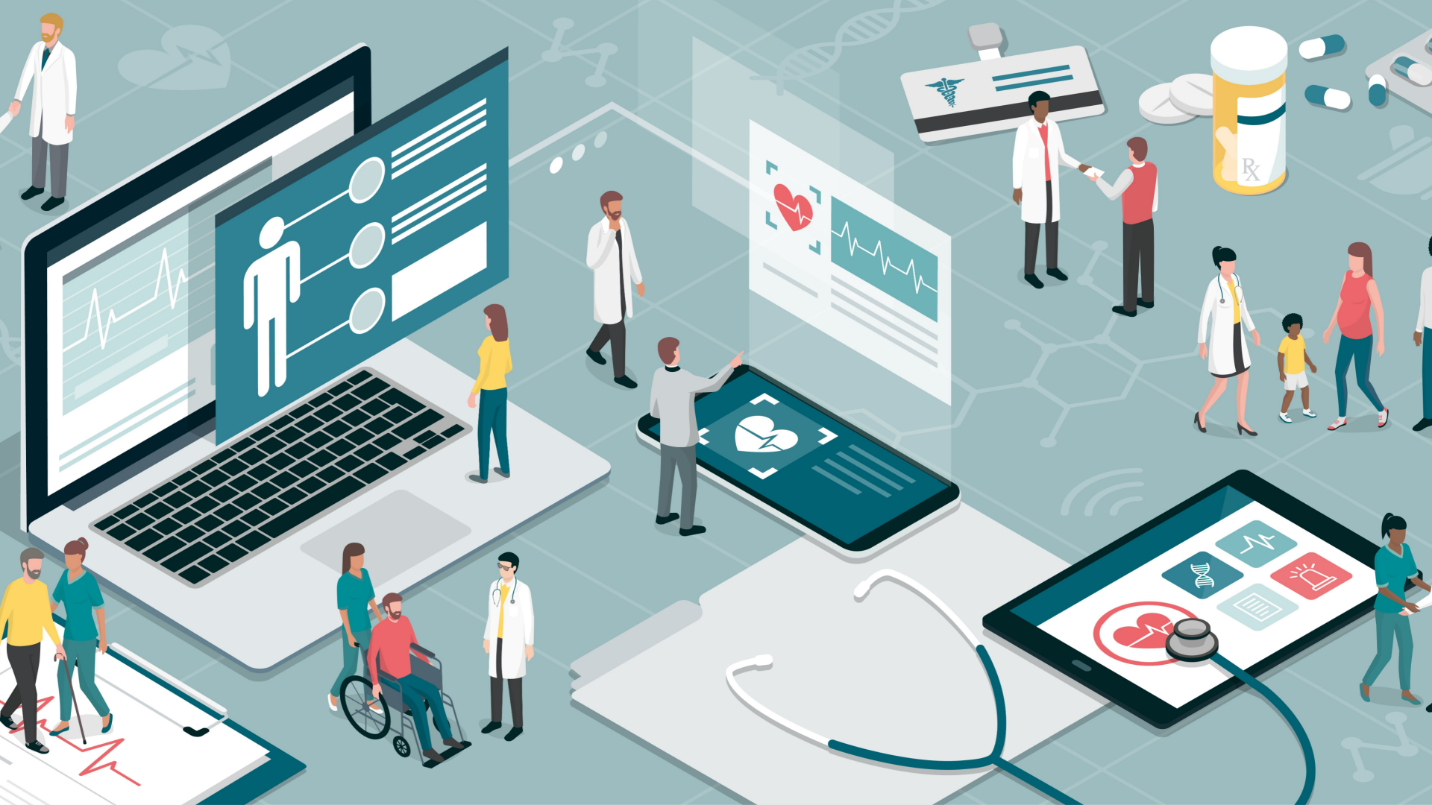The healthcare landscape is undergoing a seismic shift, driven by the rapid evolution of Digital Health Platforms. These platforms, which encompass a range of technologies from telemedicine to wearable health devices, are redefining how healthcare is accessed, delivered, and managed. As we look to the future, the potential for these platforms to revolutionize the industry is immense, offering unprecedented opportunities for innovation and greater access to healthcare services.
The Rise of Digital Health Platforms
Digital Health Platforms are not a new concept, but their adoption has accelerated dramatically in recent years. The COVID-19 pandemic acted as a catalyst, compelling healthcare providers to adopt digital solutions to maintain continuity of care. Telehealth services, for instance, saw a surge in usage as patients sought remote consultations to avoid potential exposure to the virus.
These platforms leverage a combination of technologies, including artificial intelligence (AI), machine learning, big data analytics, and the Internet of Things (IoT), to provide comprehensive health solutions. They facilitate remote monitoring, virtual consultations, electronic health records (EHRs), and personalized treatment plans, making healthcare more accessible and efficient.
Enhancing Access to Healthcare
One of the most significant benefits of Digital Health Platforms is their potential to enhance access to healthcare services. Traditionally, healthcare access has been limited by geographical, financial, and logistical barriers. Rural and underserved communities often struggle with a lack of healthcare facilities and professionals, leading to disparities in health outcomes.
Digital Health Platforms can bridge these gaps by enabling remote consultations and monitoring. Telemedicine, for example, allows patients in remote areas to connect with specialists without the need for long-distance travel. Wearable devices and mobile health applications can monitor vital signs and chronic conditions in real-time, providing healthcare providers with valuable data to make informed decisions.
Moreover, these platforms can reduce the cost of healthcare delivery. Virtual consultations and remote monitoring can minimize the need for in-person visits, reducing transportation costs and time off work for patients. This cost-effectiveness is particularly beneficial for low-income populations who may otherwise forgo necessary medical care due to financial constraints.

Driving Innovation in Healthcare
Innovation is at the heart of Digital Health Platforms. The integration of advanced technologies is transforming how healthcare is delivered, making it more personalized, proactive, and predictive.
- Artificial Intelligence and Machine Learning: AI and machine learning algorithms are revolutionizing diagnostics and treatment plans. These technologies can analyze vast amounts of data to identify patterns and predict health outcomes. For instance, AI-powered diagnostic tools can detect diseases like cancer at an early stage, improving the chances of successful treatment. Machine learning models can also personalize treatment plans based on an individual’s genetic makeup, lifestyle, and medical history.
- Big Data Analytics: The healthcare industry generates an enormous amount of data, from patient records to clinical trial results. Big data analytics can process this information to uncover insights that can improve patient care and operational efficiency. Predictive analytics can identify potential health risks and enable early interventions, reducing the burden on healthcare systems.
- Internet of Things (IoT): IoT devices, such as wearable fitness trackers and smart medical devices, are becoming increasingly prevalent. These devices can continuously monitor a patient’s health and transmit data to healthcare providers in real-time. This real-time monitoring can detect anomalies and trigger timely interventions, potentially saving lives.
- Blockchain Technology: Blockchain offers a secure and transparent way to manage health records and transactions. It can ensure the integrity and confidentiality of patient data, addressing concerns about data breaches and privacy. Blockchain can also streamline administrative processes, such as insurance claims and billing, reducing paperwork and fraud.

Challenges and Considerations
While the future of Digital Health Platforms is promising, several challenges must be addressed to fully realize their potential.
- Data Privacy and Security: The increased use of digital health solutions raises concerns about data privacy and security. Healthcare data is highly sensitive, and any breach can have severe consequences. Robust cybersecurity measures and compliance with regulations like the Health Insurance Portability and Accountability Act (HIPAA) are essential to protect patient information.
- Interoperability: The healthcare ecosystem comprises various systems and platforms that often operate in silos. Ensuring interoperability between these systems is crucial for seamless data exchange and coordinated care. Standardization of data formats and protocols can facilitate interoperability and enhance the efficiency of Digital Health Platforms.
- Digital Divide: While Digital Health Platforms can improve access to healthcare, there is a risk of exacerbating the digital divide. Not all patients have access to the necessary technology or the digital literacy to use these platforms effectively. Efforts must be made to ensure that vulnerable populations are not left behind in the digital health revolution.
- Regulatory and Ethical Considerations: The rapid pace of innovation in digital health raises regulatory and ethical challenges. Ensuring the safety and efficacy of digital health solutions is paramount. Regulatory frameworks must evolve to keep pace with technological advancements, and ethical considerations, such as informed consent and algorithmic bias, must be addressed.
The Path Forward
The future of Digital Health Platforms is bright, with the potential to transform healthcare delivery and improve health outcomes. To harness this potential, stakeholders must collaborate and invest in the development and implementation of these platforms.
Healthcare providers should embrace digital solutions and integrate them into their practice. Training and support should be provided to ensure that healthcare professionals can effectively use these technologies. Patients should be educated about the benefits of digital health and empowered to take an active role in managing their health.
Policymakers and regulators must create an enabling environment for digital health innovation. This includes developing clear guidelines and standards, fostering interoperability, and addressing ethical and privacy concerns. Public-private partnerships can play a crucial role in driving research and development and scaling digital health solutions.
In conclusion, Digital Health Platforms are poised to revolutionize healthcare by enhancing access and driving innovation. As we navigate the future, it is essential to address the challenges and leverage the opportunities presented by these platforms. By doing so, we can create a more equitable, efficient, and effective healthcare system for all.












